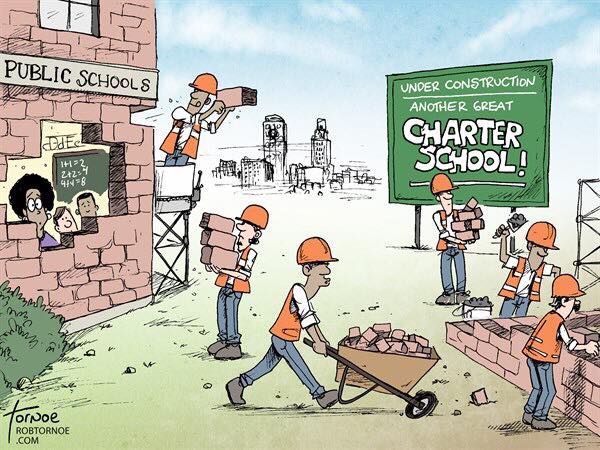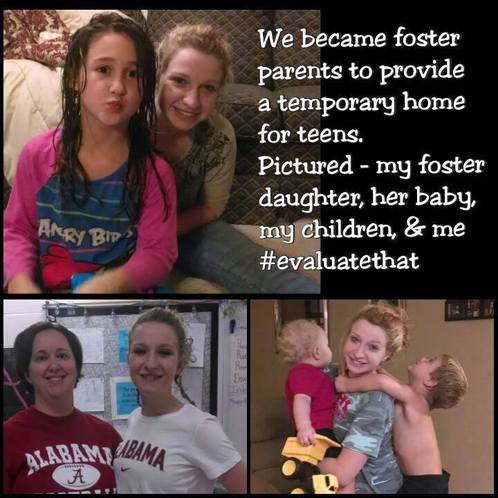Jere Baxter boasts a beautiful new building, but is severely underenrolled at only 53% capacity. Dr. Register said hundreds of students in the area are now attending new charter schools, which have oversaturated the East Nashville market. (See the correlation here?)
Jere Baxter serves a population of 97.9% free and reduced lunch students. It has a mobility rate of 58% and a chronic absence rate of 18%. To no one's surprise, this school is struggling. This year, only 15.8% of its students were reading on grade level.
Dr. Register led off the discussion with Jere Baxter's dismal performance and said that no child should be subjected to a "failing" school. A parent responded with the question I had in mind: What actually makes Jere Baxter a "bad" school? Although Dr. Register didn't really answer this question, staff members complained about the lack of continuity - with constantly rotating students, teachers and principals. Teachers asked for greater supports. A parent noted that many students at the school are desperately seeking teachers' attention, and the school needs more staff. One teacher who had taught at both a charter and traditional schools pointed out that guidance counselors at traditional schools are too tied up with testing to actually offer counseling. (This is definitely the case at my child's school.) No one mentioned the elephant in the room - the impact of poverty and mobility on student performance.
The most disturbing part of the discussion for me, however, was the new focus onrecruiting students, rather than discussion of how to best address the huge challenges at the school. According to Dr. Register, the need to compete for students is just a reality now, and traditional schools need to step it up. He went on: Because charter schools are "out recruiting us" (despite the fact that our traditional schools provide more offerings than MNPS charter schools), we must become better recruiters at traditional schools. Other MNPS officials also spoke about the need to "sell" and market our schools and go door-to-door looking for students (like our charter schools). One teacher pointed out that charter schools often host huge BBQ dinners to recruit families and (only somewhat jokingly) asked for a budget for BBQ!
This focus on recruitment and competition is all a direct result of the national, state, and local attacks on public education, created by those who view our schools as markets, our families as consumers, and our children as mass-produced commodities.
Then, a voice of reason spoke up. A teacher said, "I went to school to be a teacher. Not a business person. Not a marketer. Not a recruiter." She asked: When can I do my job and teach? Where are my supports?
So after tonight's meeting, here are my questions: Is it really a good idea to require parents to compete for spots at coveted "choice" schools and ask teachers to become recruiters for the best test takers? Where is community in all this "choice," competition and winning?
What has happened to the ideal that we will work together to build healthy communities and ensure that every neighbor is welcomed and accepted? We should make sure that children who have special needs, immigrant children who can't speak English, those with behavioral problems, and those who simply struggle in school are just as welcome as children who perform best in school, and that our struggling students will receive the extra support that they require. We should work together to support our schools in addressing these difficult issues and never give up on a single child.
In the end, this all seems to be a numbers game. Last year, Memphis closed down several of its "failing" schools, which increased Nashville's number of "failing" schools. We can now respond by shutting down our own "failing" schools (poof- no more "bad" schools!) and play the game of competing to win. Or we can take the brave step of not buying into all of this market-driven insanity.
In short, we can choose to educate children, or we can sell out by "marketing" our "product" to "customers."
We can have chaos, or we can have community.
What would happen if MNPS refused to play the "reform" numbers game anymore? What if we just decided to stand up to the bullies? Instead of merely shuffling students around to make our numbers look better, we, as a district, could decide that shuffling struggling students around is not the answer, even though it may momentarily make MNPS look better on the State Report Card. We could decide that we value each individual student and recognize that just moving "failing" students from school to school does nothing to address their academic problems. Instead of rubber-stamping military-style schools that get great scores, but don't offer healthy social/emotional learning opportunities, physical activity or enrichment, we could demand a focus on best practices. We could acknowledge that there are no miracle school cures, just like there are no miracle diet cures, and invest time, energy and long-term resources into our existing schools. We could create a budget that allows for extra support staff in the schools with the most challenging populations.
We could acknowledge that real school reform takes time.
I believe these are the discussions we need to undertake. Who's with me?
[emphasis added by TN Parents]




 RSS Feed
RSS Feed
